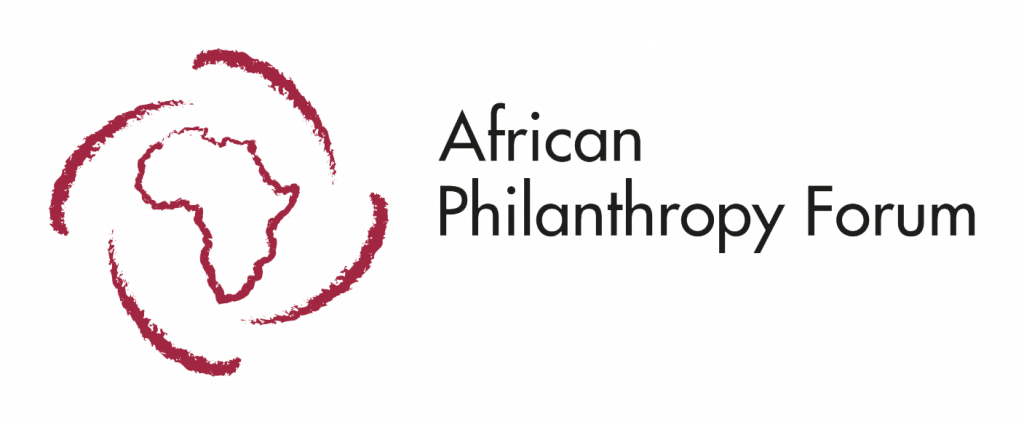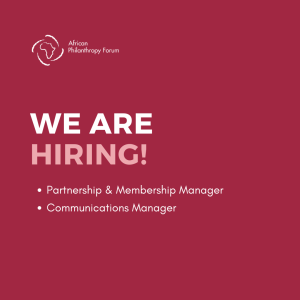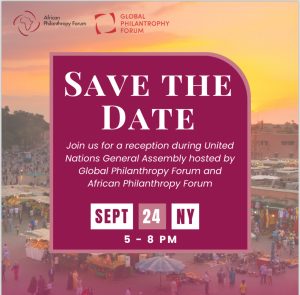Philanthropists may have very clear ideas about the societal issues they wish to address and often they have a wealth of knowledge and experience to bring to bear. However, it helps to also remember that a community-based organisation or a non-profit organisation is more likely to be closer to the communities, its development issues and have a deeper understanding about the types of interventions that are required. And furthermore, and perhaps more importantly, the ultimate beneficiaries of the grant, or the community directly affected, have assets, knowledge and resources that can be identified and mobilized. They should drive the development process. This is a development approach called “asset based community development” (see www.abcdistitute.org).
Consequently, it is a valuable principle for philanthropists to respect the agency of those they seek to assist and to be humble in their approach to donating funds. Philanthropists have limited power to change the system on their own, as well as limited resources (both financial and human) and experience and knowledge. A respectful approach, combined with a great deal of listening, will encourage grantees to be open in their views and tell the donor the whole story, even if there are mistakes and failures along the way. Failures and mistakes (unless there is evidence of serious negligence, fraud or continuous repetition of mistakes) should not be penalised by a withdrawal of funding. Instead the philanthropist could take an approach of discussing with the NGO what has been learnt and ways of improving.
However, just as there are responsibilities on the part of the philanthropist, so too are there rights. Donors have a right to hold the grantees accountable and to apply a professional approach in dealing with donees and others. An identified need is not in itself sufficient motivation to provide funding. A poorly conceptualized and badly executed project could cause just as much harm as good and the philanthropist should only consider investing in a well-run, responsive organization. Arguably, an NGO’s ability to manage its relationship with its funder is an indicator of its overall efficiency and effectiveness and therefore high standards of accountability should be present in the relationship between the donor and donee.
Practical aspects of the relationship are also important. For example, it is mutually beneficial to agree on when reports should be submitted to ensure that there is reasonable period on which to report and to assist the NGO to manage multiple reporting deadlines.
A (sad but often true) story of a relationship between donor and donees.
Foundation X is looking to support projects involved in primary health care and sends out a call for proposals to the NGO health community giving a deadline of 1 July. Five proposals are received and Foundation X decides to support two. It writes a brief letter to the 2 organisations on 4 November and never gets back to the other, unsuccessful organisations. Before the 2 successful organisations can reply to the “grant letter”, the Foundation deposits 50% of the grant into the NGO’s’ accounts. It also sends another email with a long and complicated reporting form it says it will require to be completed within 12 months from the deposit being received.
In the meantime, NGO Y, one of the successful organisations, has received funding from another Foundation for the same project but has yet to inform Foundation X. In addition, it has just discovered that its part time bookkeeper is actually unqualified and has made a mess of its books. It will take months to understand its exact financial position properly. The director of the NGO decides to wait until the problem is solved before telling her donors. When Foundation X’s deposit is received, the director of NGO Y is surprised but decides to hang onto the funds, which will help with the unexpected auditing expenses – she is sure she can sort this out with Foundation X later seeing as the Foundation’s original communication was so brief and vague.
What did Foundation X do that did not help establish relationships of respect, transparency and clarity with NGO’s in its area of interest? How could they have approached the NGO’s differently? What should they do to improve the relationship? Likewise, what did NGO Y do that would create disappointment, unfulfilled expectations and distrust amongst its donors? What should it have done differently? How can they better manage the relationship in the future.
—
This article is an excerpt from the first edition of the Toolkit for African Philanthropists published by the African Philanthropy Forum. To learn more about this toolkit, please visit here africanpf.org/publication


